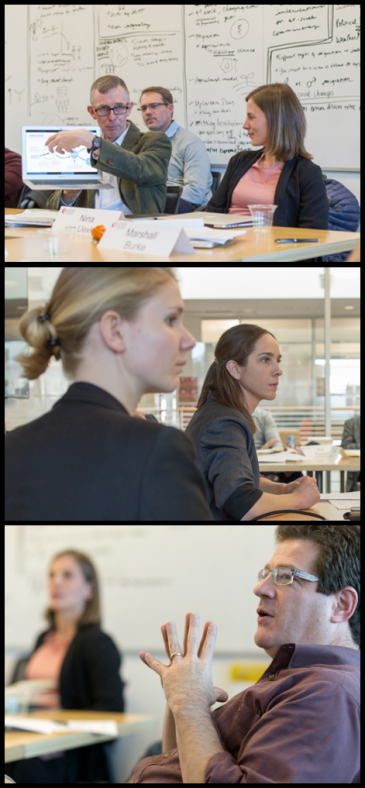Focusing in on both the agreement and the disagreement sheds new light on the linkages between climate and armed conflict.
In our recent analysis, published in the journal Nature last week, we conducted an expert assessment of the relationship between climate and conflict. Previous studies have both asserted and refuted linkages between climate variability and change and their potential consequences for the risk of violent conflict. Even synthesis studies have struggled to crystallize current understanding.
In short, we found strong agreement among experts that climate – in its variability and change – influences the risk of organized armed conflict within countries. But other factors, such as the capacity of the state or levels of socioeconomic development, play a much larger role. The jury is still out on the precise mechanisms at work across different contexts. Into the future, experts estimate intensifying climate change will drive up the risks.
In studies of assessment and applied policy analysis, it has long been suggested that embedding extended elicitation of the perspectives of experts within an assessment process could yield more balanced, comprehensive, and unbiased judgments. We did just that. Our project brought together 11 top experts across disciplines. We started with full-day elicitation interviews with each expert, followed by a two-day group deliberation and debate. Then we all wrote the manuscript together. Through this approach, we first amassed a large data set of careful individual judgments on the full body of relevant evidence. This data set of expert judgments served as grounding and rich fodder for collectively tackling the most wide-open questions in open-ended group exchange and the group paper.
Expert elicitation, as a long-standing analytical method, aims to assess the strengths and limitations of available evidence through approaches that reduce common biases in judgment. One approach is a comfortable confrontation, asking an expert, “Imagine you are wrong. Could you explain how that could be the case?” In exploring linkages between climate and conflict, such questions could tackle existing paradigms head on and also the limits of extrapolating from historical experiences far into the future. There are important uncertainties about drivers of conflict, climate aside, and about potential nonlinearities in the changing climate, conflict aside. In the elicitation, we worked with each expert individually to unfold the nuances collectively.
The goal of the deliberation was to table the full range of perspectives. In our strategic approach, minds collided at different social scales. Experts reflected on questions individually. They drew conceptual diagrams – their mental models – in small groups. And in the full group, they hurled thoughts around the table on the nature of future risk and the reasons why studying conflict is so challenging. The insights were riveting.
In our Analysis on climate and conflict, we set out to identify areas of agreement and the reasons for disagreement across the current academic field. As in any good assessment, we identified as many questions as answers. The current state of knowledge and its limits provide an exciting jolt for next steps in research and societal management of the changing climate and its consequences.

Images from the group deliberation. Members of the expert group: W. Neil Adger, Halvard Buhaug, Marshall Burke, James D. Fearon, Cullen S. Hendrix, Jean-Francois Maystadt, John O’Loughlin, Philip Roessler, Jürgen Scheffran, Kenneth A. Schultz & Nina von Uexkull. Photo: Woods Institute for the Environment.
Caroline M. Kraan is Research Professional at Stanford Woods Institute for the Environment. Katharine J. Mach is Senior Research Scientist at the Department of Earth System Science at Stanford University.
This blog post originally appeared on Nature Research’s ‘Behind the Paper’ blog under the heading ‘What’s the relationship between climate and conflict?’ on July 11, 2019.
Leave a Reply